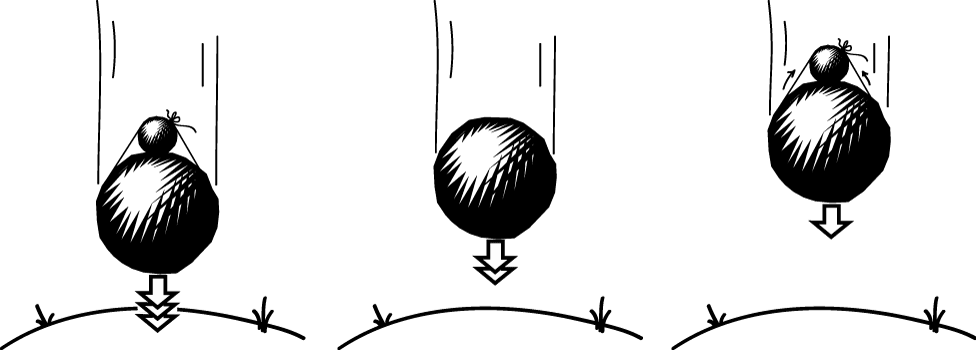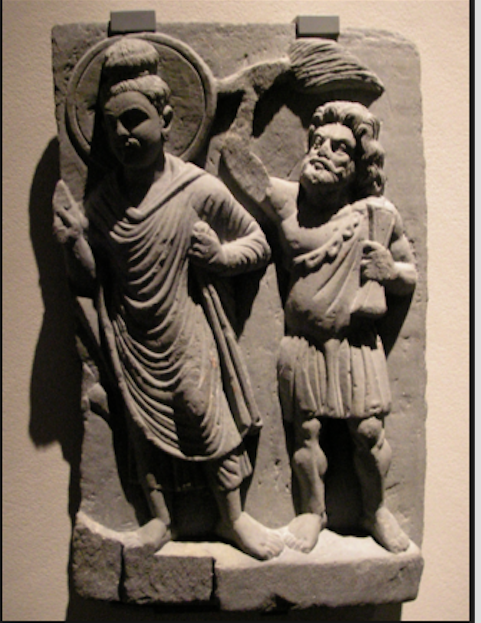The stuff I write is always based on actual research done in our timeline. The appropriate studies can be found in the Source section of the individual posts. As why we didn’t or don’t do all the stuff in our timeline? That a questions of ethics, economics and luck. But if anybody finds flaws in the chain of events described so far please tell me. I welcome any constructive criticism by those more knowledgeable in the field then me.
As for how weird medical techwanks can go, the next chapter will be based on the discovery and “mass” production of estrogen/testosterone in Song China that actually happened in our timeline. It really shows how having the right/wrong theory combined with some good, empirical research and luck led to someing indcredible. It really shows how having the right/wrong theory combined with some good, empirical research and luck led to something incredible. Although without leaving a lasting legacy unfortunately.
This led me to read your latest passage more carefully. Here's what I pick up:
1) Antiseptics being adopted; this will presumably greatly lower the death rate among those who go to doctors, making medicine of this school more popular. More popular means more revenue, attracting more candidates into this profession, enhancing the prestige of this particular school of medicine. To be sure loads of charlatans, as well as well meaning practitioners with different beliefs, will dilute the groundswell of popularity somewhat. But more followers of this school who are more successful will result in accelerated development of medicine along these lines; more practitioners means more cases, more consideration of different hypotheses, a snowballing effect.
Also generalizing the idea of antisepsis might change the statistics of warfare considerably, if Roman or rival armies take the idea of bringing sawbones along. If the death rate among soldiers on campaign falls due to more stringent practices then that military force has an advantage over rivals that are slower to incorporate a medical corps.
Insofar as the Army is the State in this era, official state patronage of this school of medicine will reinforce the school still further and tend to popularize its ideas by official sanction.
2) Blood typing? This seems to be casually mentioned as though it were discovered quite some time before and is now a commonplace!
3) via the indirect route of thinking of citrus fruits as electrical sources, the effects of vitamins seem to be mistaken for the effects of electrification, whatever that precisely means in context (hooking blood and patients up to electrical charge sources?) Anyway if citrus is favored because it "electrifies" patients, they get the benefit of the vitamins, perhaps. Better health, stronger soldiers, healthier peasants and artisans, a more prosperous empire. Perhaps one that shifts away from mass plantation/enterprise slavery and toward more market-based capital/worker relations?
Or then again, techniques for making workers healthier might be applied by slave owners. Slaves have the dilemma that the master only wants them to be healthier to work them harder; resistance might lead to self-sabotage of their health. But the conflict of interest might also lure some slaves into better compliance, and if masters take to rewarding the more compliant with better diet and healthier working conditions than their more recalcitrant shackle-mates, perhaps some of the workplace dynamic of capitalism can be introduced into big centrally run slave operations. Realistically since the Classical world is not really ready yet for a proper capitalist setup with the working masses being alienated from primary means of production (they'd starve if they didn't have any access to land of their own; trade in food and other essentials is not reliable enough to replace community craft work) then perhaps a more capitalistic slavery system might substitute and dominate the outcomes? Slaves still seek freedom, but some accommodate and are creatively adaptable to changing workplace conditions in the hope of being treated as a better grade of slave--and not incidentally on the track of becoming a freedman perhaps. Freedmen in turn tend to be clients of their former owners; as such they might be trusted with more foreman type roles in a quasi-capitalist, semi-industrialized workplace that is fundamentally worked by slaves instead of wage workers. The master is responsible for keeping them alive but as he is rich and his class has great influence, the master can generally deliver, scrounging the least bad foods and so on when the markets get very tight and legally freer artisans and peasants are starving.
Progress in reorganizing the work process would be slower than under pure capitalism, but perhaps fast enough to encourage more science and find discoveries and innovations useful and worth reorganizing the work process around yet again. Productivity goes up and this works out to enrich the master more, making them even more powerful and sucking more of the desperate poor into the slavery system.
Also providing infrastructure for more scientific philosophers.
4) I'm totally mystified by the electrification of blood slowing clotting. Is that something modern doctors and EMTs know all about nowadays?
If the update is saying a lot more I'm missing it. All that is already quite a lot of course! Better medicine means a stronger Classical world. If they can dramatically check the depredations of a big epidemic then events believed OTL to have tipped the balance toward Roman collapse in the west might be mitigated, on top of a basically larger and healthier populace. More Roman subjects living longer, more surviving childhood--they risk running into famine instead of disease being the major killer But more numbers and better morale might lengthen the period considered in retrospect the peak of Roman civilization and reduce the relative advantages enjoyed by the waves of invaders, holding them at bay or maybe even partial resurrection of Roman expansionism, into Germany, the Netherlands and the Baltic, or eastward into the Danube lands and northward.
In addition to more space and more population, this also buys more time for the unnoticed consequences of early scientific and technical discoveries to be considered and worked out in practice eventually.
Despite the spread of all this precocious discovery, the possibility that if proper capitalism as we know it cannot develop that some alternative basis of industrial progress might exist, and the nature of one salient of discovery tending to open up others (say, electricity leading to advances in chemistry that might enable the kind of metallurgy that enables either steam power or gunpowder weaponry a leg up) and even the prospect of a healthier if not much less hungry Empire serving as a general solvent and lubricant and power house, I suspect we must expect progress to run on a slower time scale. Say stuff that took 100 years over the course of the 18th or 19th century here takes 300 years. Even so with the OTL lifespan of the Roman Empire (in the west) being longer than that and the prospect that some of the changes we already see can buy it space, time and more man and brain power, might we see a complete Mediterranean centered empire surging north and east (maybe also south across the Sahara) that reaches say 1850 levels on the average? I mean by that maybe radiotelegraphy before wire telegraphy, maybe electric motors and dynamos before steam engines.
Back when I was trying to figure out how Cleopatra wins alt-Actium, one line of development for naval application of motors and dynamos I thought of but did not mention was the notion of using wind power to drive windmills instead of traditional sails, the mills driving a dynamo or three that drive electric motor powered screw propellers. Instead of OTL ship evolution where Europeans in the Atlantic learn to make sail arrangements that improved their options, they instead go to this?
Have you or anyone ever seen studies comparing the theoretical abilities of wind-power being diverted, mechanically or electrically, into screw propulsion and comparing that to what can be achieved merely by suitable arrangements of sail? Is an electrified wind-powered screw galley an inherently stupid and inefficient idea compared to suitable skill with arranging canvas tops, or can it be superior? If not superior across the board, competitive and perhaps advantageous in certain situations?
I particularly wonder what happens when a fairly mechanically efficient windmill equipped ship with fairly efficient dynamos and motors sails straight into the wind. Forward speed should actually increase the effective wind and thus power! On the other hand the force of the wind on the windmills will be pushing the ship backward. Can the mills gain enough power from the wind to drive forward despite the direct wind force? Being able to sail straight into the wind might be impressive! I imagine that some degree of tacking would be more efficient, but to turn on an enemy ship that has the windward gauge and drive straight for it...!
I'm thinking of later Romans having more ability on the Atlantic you see. I no longer think Cleopatra's regime has time to implement anything like this, but perhaps by 300 CE or so Romans are using windmill-screw ships and have radiotelegraphic communications and are sailing up and down the eastern Atlantic coast from Norway to West Africa.
As I understand it, the trouble with trading with West Africa is that the winds and currents bring one down to the south side of the bulge of western Africa readily enough, but then it is murder to try to sail back north against these same flows. A prop ship that can make headway straight into the wind, albeit slowly, might better be able to make the round trip.



